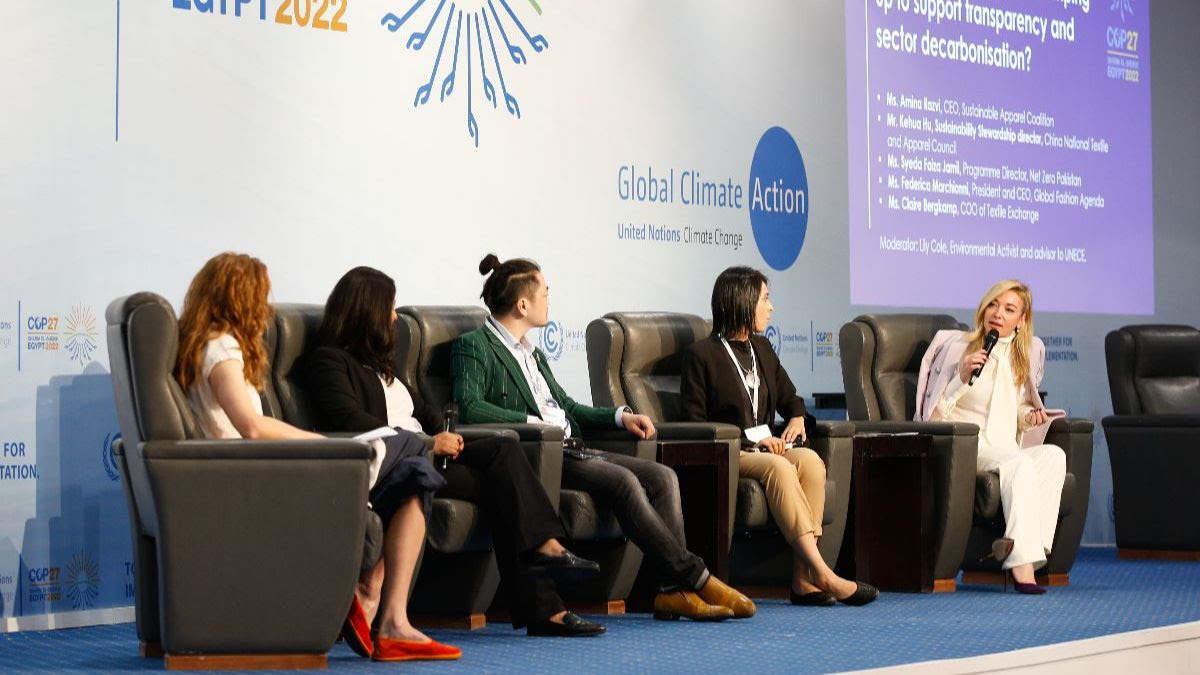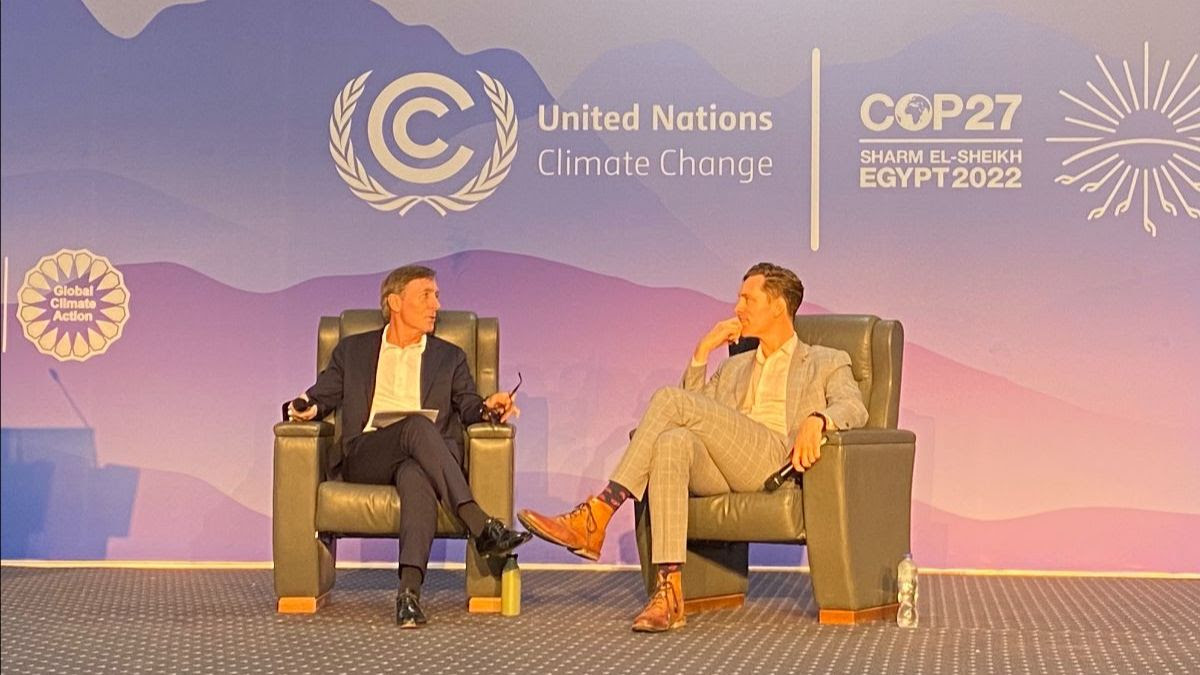Key players in the sustainability movement flocked to Egypt last week for the 27th United Nations Climate Change Conference, which is on now until the 18th of November in Sharm El Sheikh. The conference, often referred to as Cop27, draws in leaders across all sectors to discuss climate change issues and solutions. Attendees include climate change activists, policymakers, society representatives, CEOs, and, most recently, representatives of the fashion industry.

Ever since 2015, the Global Fashion Agenda (GFA) has rallied members of the industry together during the United Nations Climate Change Conference to discuss the many challenges fashion must face on its path to becoming a more responsible industry. These discussions have been fruitful, as the conversations led by the GFA are historically comprehensive in scope. Experts have unpacked everything from how carbon emissions negatively impact planetary health to the lack of representation in the metaverse during its panels. This conference in Sharm El Sheikh was no different, as attendees used their various backgrounds in the industry to offer meaningful insight into how to best reform it.
One of the most prominent takeaways is the need for comprehensible industry standards regarding how we treat employees and the planet. Per the GFA, reinforcing these standards with policy changes, such as incentivising manufacturers to use nonvirgin materials, would be ideal. This kind of monetary solution is another touchstone of the conference, which noted the critical role investments have in reshaping the industry, from accelerating decarbonisation to funding innovative projects.

Lastly, we need the execution of ideas. “It is essential that leaders attending COP27 move beyond words to set clear commitments that are rigorously followed through beyond the conference, leading to the implementation of concrete and urgent actions,” said Federica Marchionni, the CEO of the Global Fashion Agenda. Marchionni added, “use this moment to set ambitious and transformative parameters, not only on the climate but also considering the intersectionality of sustainability topics from equality and empowerment to living wages and contextual nature targets for instance on fresh water and biodiversity.”








